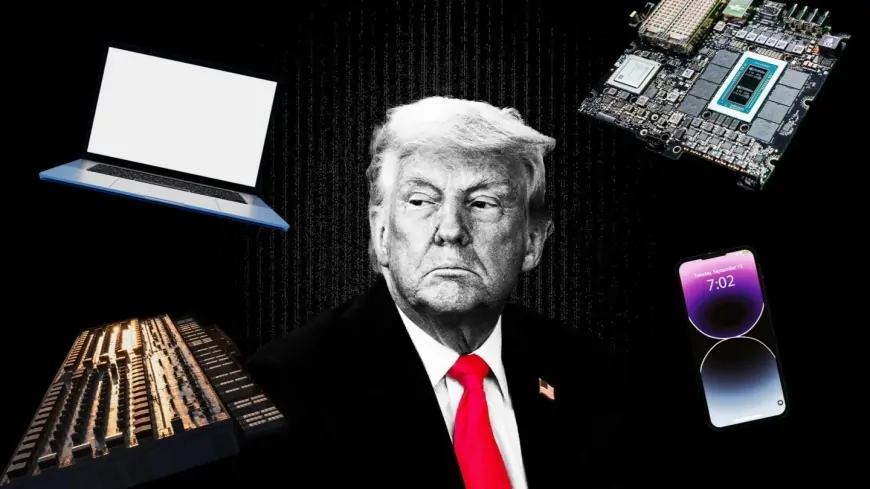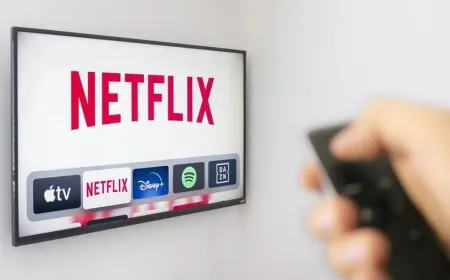Apple Gains, Nvidia Drops $230B in Trump Tariff Shake-Up
Tariff exemptions give Apple a short-term boost, while Nvidia faces losses after new chip export restrictions deepen trade uncertainty.

This week for U.S. tech stocks, Apple and Nvidia have become ground zero for Wall Street's anxiety over President Trump's expanding tariff regime. With trade policy now tightly intertwined with national security and geopolitical power plays, the market is watching every new announcement—and reacting fast.
Apple Narrowly Dodges a Major Tariff Hit
Apple had been one of the most vulnerable companies when Trump announced new reciprocal tariffs on April 2, given that the majority of its products—including iPhones—are assembled in China. That vulnerability became painfully clear as Apple lost up to $773 billion in market cap in the days that followed.
But a late intervention from U.S. Customs and Border Protection, which issued a temporary exemption for consumer electronics late Friday, gave Apple a lifeline. The exemption effectively shielded key Apple products from the initial round of tariffs.
That relief was reflected in the markets. Apple’s stock climbed more than 2% on Monday, pushing its valuation briefly back above the $3 trillion mark. While the company isn’t out of the woods—future tariff rounds remain a possibility—the move gave investors some breathing room.
Nvidia Caught in the Crossfire Over AI Chips
Nvidia hasn’t been as fortunate. The chipmaker revealed on Tuesday that the U.S. government had expanded restrictions on the export of its high-end AI processors to China—an action that wasn’t labeled as a tariff, but had the same chilling effect.
The ban immediately rattled investors, leading to a 7% drop in Nvidia’s share price by Wednesday. The company lost $230 billion in market capitalization in a single trading session, underscoring how exposed it is to rising U.S.-China tech tensions.
While Nvidia’s core business remains strong, the inability to sell its most advanced AI chips to one of its biggest foreign markets signals a major strategic headwind. Analysts now expect slower international revenue growth as a result of the export controls.
Trade Policy Gets Personal for Tech
Trump’s tariffs have officially moved beyond steel and soybeans—tech is now front and center. The administration’s 10% blanket tariff on global imports took effect April 5, and while most reciprocal tariffs have been delayed for 90 days, a crushing 145% duty on Chinese imports is already active.
Adding to the uncertainty, the Commerce Department announced this week that it is investigating semiconductor imports under national security provisions—an inquiry that could pave the way for sweeping tariffs across the electronics sector.
That means companies like Nvidia, Apple, and others in the “Magnificent Seven” may not be spared much longer, even if they've temporarily escaped penalties.
Investors Brace for More Volatility Ahead
Wall Street is trying to make sense of a fast-changing trade landscape. Apple’s relief this week is viewed as a short-term win, not a long-term resolution. Nvidia, meanwhile, has become a symbol of how deeply U.S. national security policies are now embedded in global tech strategy.
With 90 days to go before the full set of reciprocal tariffs could take effect, and semiconductor probes already in motion, the pressure on Big Tech is only increasing.
For investors, this isn’t just about short-term headlines—it’s about adjusting to a market where politics, protectionism, and product pipelines are now permanently linked.
Also Read: Stock Futures Flat as Boeing Slides, Netflix and Bank of America Post Strong Updates
































































